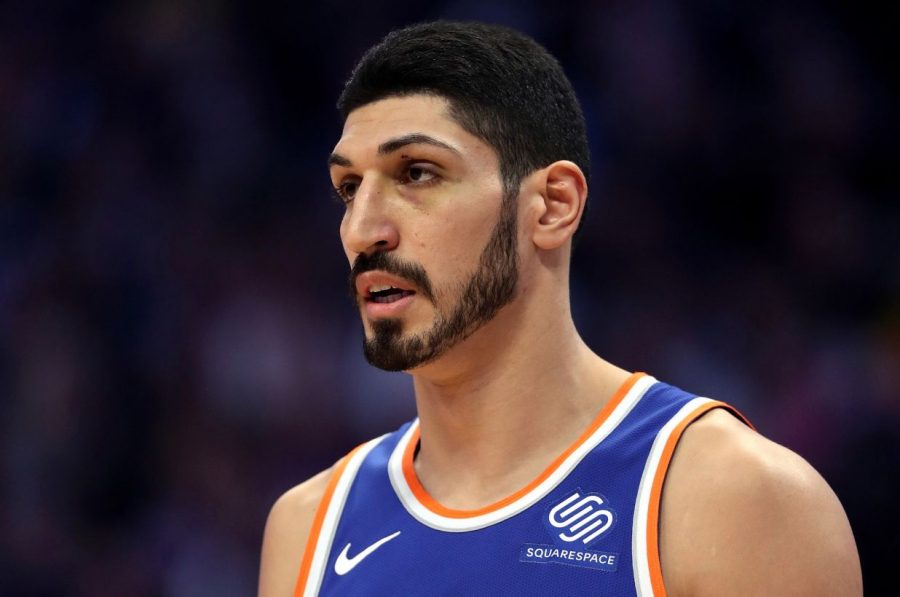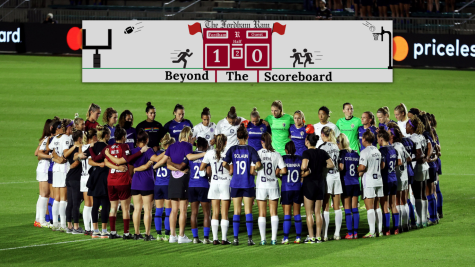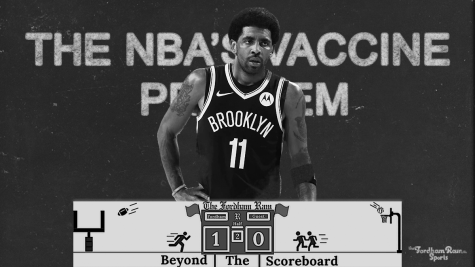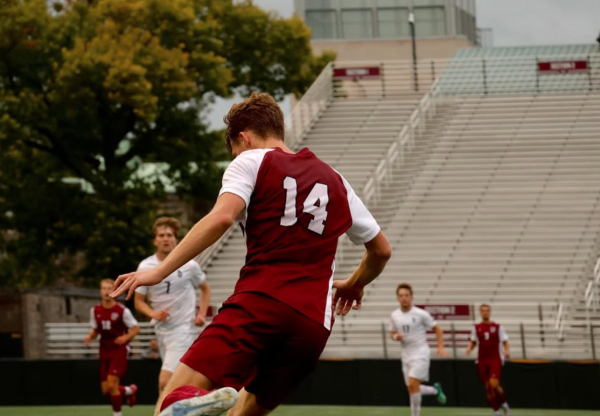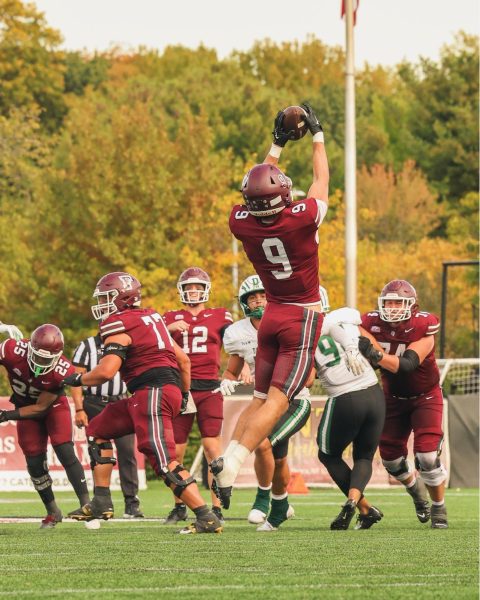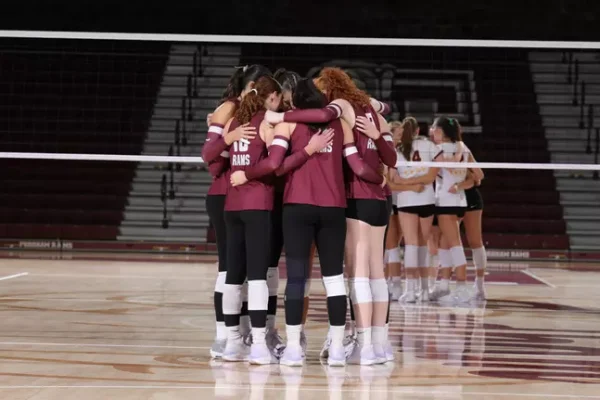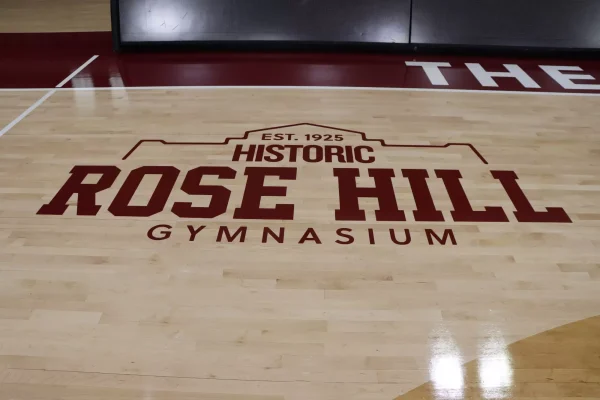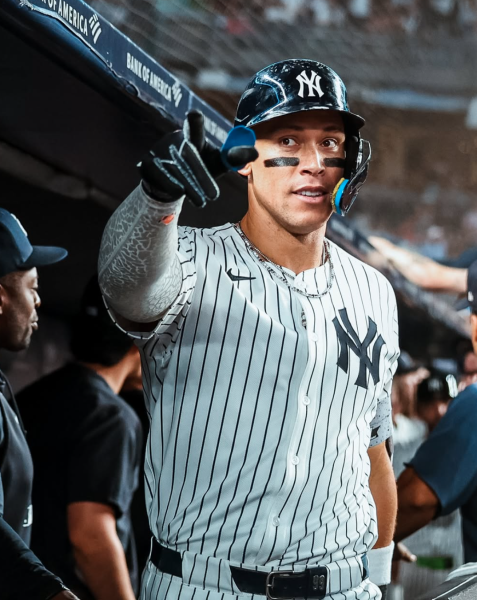Beyond the Scoreboard: Enes Kanter Stays Home
By Andrew Posadas
New York Knicks center Enes Kanter missed this past Thursday’s game in London against the Washington Wizards. Kanter did not have any sort of injury prohibiting him from playing. There was no kind of suspension barring him from taking the court. His absence was not due to any internal conflicts with the Knicks or management.
Yet, Kanter refused to make the trip across the Atlantic Ocean. What could possibly prevent an athlete from doing his job? For the Turkish-born basketball player, his reasoning was simple: playing basketball in London could potentially end in assassination.
Initially, the New York Knicks stated earlier this month that Kanter would miss the London game because of a visa issue. However, Kanter took time on the day prior to Thursday’s game to deny the claim and elaborate on the real reason he wouldn’t accompany the team.
In his homeland of Turkey, prosecutors are furiously seeking a warrant for Kanter’s arrest. The warrant stems from two reasons: Kanter has staunchly opposed Turkish President Recep Tayyip Erdoğan publicly for the last several years, and he has been allegedly linked to exiled Muslim cleric Fethullah Gulen, the man blamed for a failed coup in Turkey three years ago.
Further escalating matters, Erdoğan is seeking a “Red Notice” through Interpol. On Interpol’s official website, a Red Notice is described as a request to locate and provisionally arrest an individual pending extradition. In the eyes of the Turkish government, Enes Kanter is part of a terrorist organization. However, as far as the U.S. is concerned, they have seen no sufficient evidence to adhere with Turkey’s international arrest warrant.
Kanter traveled to D.C. last Tuesday to meet with Senator Marco Rubio and other lawmakers to discuss the state of affairs in Turkey. In an interview with ESPN’s Ian Begley, Kanter explained that he was told at the meeting not to worry about the current extradition request. “There’s no way they can extradite me back in Turkey because I didn’t do anything wrong here,” Kanter said.
Even with support from the American government, Kanter would ultimately end up watching the Knicks play in London from his apartment building. With the information on hand, my first question is: how could this have happened?
During his explanation for refusing to go to London, Kanter told reporters, “They’ve got a lot of spies there.”
He also stated, “I think I can get killed there. It would be a very ugly situation.”
Think about that. A basketball player unable to fulfill his obligation because he believes he may die in doing so. This also raises the question for the NBA: could it have done more to support Enes Kanter?
Commissioner Adam Silver spoke to the media regarding the situation, surmising that there is nothing more important to him than “the security and safety of our players.” By allowing Kanter to stay home, Silver did ensure Kanter’s safety, But that is not enough.
The NBA and our U.S. government were aware of Kanter’s public criticism toward Turkish President Erdoğan. They were also aware of an incident in May of 2017 when Kanter was forced to leave Indonesia in the middle of the night because the Turkish government had told Indonesian police that Kanter was “dangerous.” Kanter was there to run a children’s basketball camp for his charity.
Could not Silver have spoken to London officials about extra security for the game, considering the circumstances? If the U.S. government feels Kanter has done nothing, could not it have granted him a temporary passport, which would offer him protection while traveling overseas?
While Enes Kanter is safe and put in no harm by missing the game, what happens now? Speaking out is only valuable when you have action behind it. Kanter is informing us about a president who has imprisoned more than 50,000 people, including judges, scholars and journalists; Those who are not on his side are automatically labelled as “terrorists.” The president has also taken away the right to free speech in Turkey by banning social media sites such as Twitter back in 2014.
Knowing all of this, there should have been more of an onus to get Kanter to London. The game Kanter is playing against the Turkish government is bigger than basketball. The moment he would have stepped onto the hardwood floor in the O2 Arena, Kanter’s message to President Erdogan and Turkish prosecutors would have changed to: “I am speaking out. And I am not afraid.”
Unfortunately, that was not what occurred. Kanter continues to recieve hundreds of death threats daily, and the Interpol Red Notice is still currently active. The time for action is coming. Will the U.S government and the NBA be ready to play some help defense for Enes Kanter?





































































































































































































